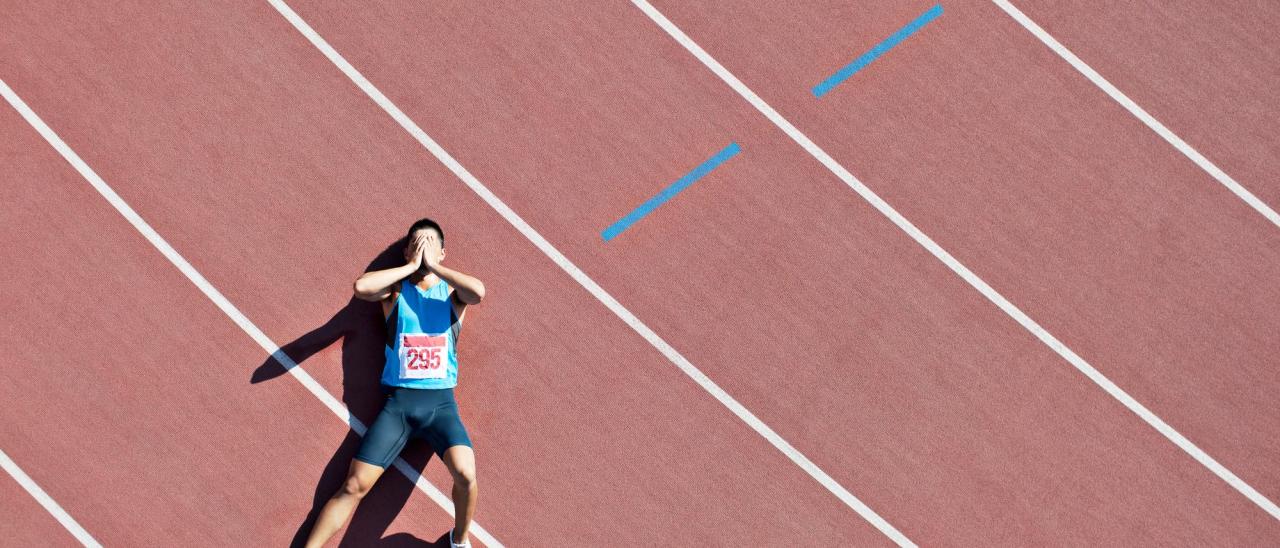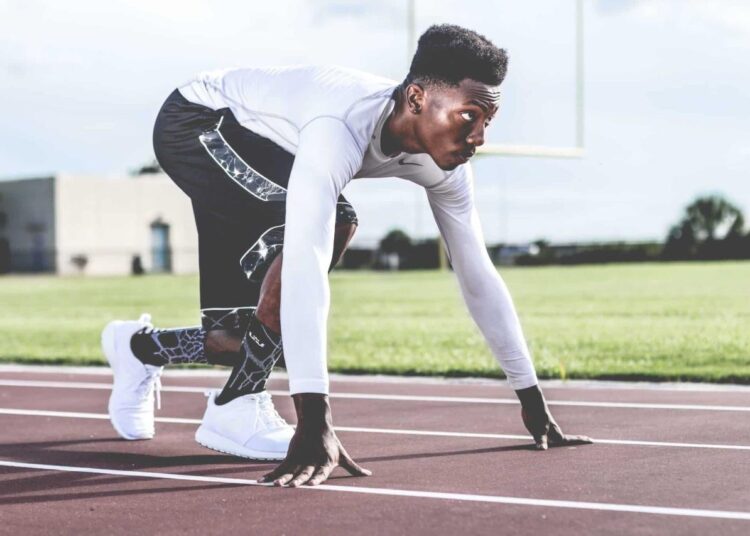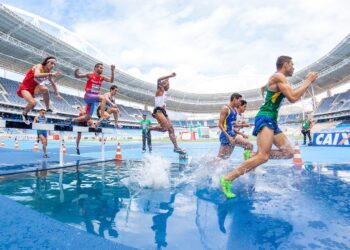The arena of professional sports has long been viewed as a realm of peak physical performance, mental toughness, and unwavering resilience. Athletes are often portrayed as superhuman figures immune to the everyday pressures that afflict the general population. However, recent years have witnessed a critical and long-overdue shift in this narrative. The topic of athlete mental health has moved from hushed locker-room conversations to dominating global headlines, driven by the courage of high-profile stars who have stepped forward to share their struggles with anxiety, depression, burnout, and performance-related stress. This newfound visibility has not only shattered stigmas within the sports world but has forced institutions, media, and fans to re-examine the immense psychological toll exacted by elite competition. The crisis is real, and the need for structural, systemic solutions is paramount.
This extensive analysis delves into the unique psychological stressors inherent in elite athletics, examines the crucial role of media and social platforms in amplifying or compounding these challenges, dissects the specific signs of mental distress often masked by the culture of “toughness,” and outlines the necessary frameworks, from grassroots to professional leagues, required to build a sustainable, mentally healthy environment for athletes.
The Unique Psychological Stressors in Elite Sports
The environment of elite athletics creates a perfect storm of pressure points that significantly elevate the risk of mental health struggles compared to the general population.
1. The Performance-Identity Fusion
For elite athletes, success in their sport is often inextricably linked to their sense of self-worth and personal identity.
- Internalized Pressure for Perfection: Athletes operate in a zero-sum game where only first place or perfection is deemed successful. This continuous, self-imposed pressure to meet impossible standards leads to chronic anxiety and fear of failure.
- Conditional Self-Worth: Their perceived value in the eyes of the public, sponsors, and even family members often becomes conditional upon their performance metrics (wins, records, contracts). A loss or injury can trigger an identity crisis—the feeling that if they are not succeeding, they are fundamentally worthless.
- The Retirement Cliff: When an athlete’s career abruptly ends (due to injury or age), the rapid severance from their entire professional identity, routine, and social structure can lead to severe depression, often referred to as the “retirement cliff.”
2. External and Environmental Overload
The pressures imposed by the outside world are amplified by the constant visibility and economic stakes of professional sports.
- Sponsorship and Financial Burden: Multi-million dollar contracts often come with performance clauses and sponsorship obligations, transforming the love of the game into a high-stakes business endeavor. The financial weight of an entire organization or family can rest on a single performance.
- Media and Public Scrutiny: Every mistake, emotional reaction, or personal choice is immediately magnified, dissected, and often brutally criticized across global media and social platforms. This constant, unrelenting surveillance leaves no safe psychological space.
- Isolation and Lack of Routine: The constant travel, training camps, and irregular schedules inherent in professional sports disrupt normal social relationships and routines, leading to social isolation, fatigue, and difficulty maintaining a stable personal life.
3. The Culture of “Toughness” and Silence
The traditional ethos of sports often actively discourages the expression of vulnerability or the seeking of help.
- Stigma of Weakness: Admitting to a mental health struggle is often perceived as a sign of mental weakness or a competitive disadvantage, potentially leading to exclusion, loss of playing time, or a damaged reputation within the league or team.
- Coaching and Historical Practice: Many coaching methodologies are historically rooted in demanding psychological suppression and demanding that athletes “power through” distress, unintentionally normalizing the concealment of mental pain.
- Lack of Confidentiality: Athletes often fear that seeking internal help (e.g., from a team psychologist) may not be confidential and could be relayed to coaches or management, impacting their career prospects.
The Role of Media and Social Platforms
While media visibility has driven awareness, the structure and speed of modern communication often exacerbate the athletes’ mental distress.
1. The Amplification of Critique
Social media provides an unfiltered, immediate channel for massive public judgment.
- The Abuse and Harassment Filter: Athletes, particularly those who are women, minorities, or have controversial opinions, are targets of relentless, personalized abuse, death threats, and harassment from anonymous online trolls. The sheer volume of this negative input is psychologically damaging.
- The “Comparison Culture”: Social media feeds present a curated reality of success and perfection, fueling competitive anxiety among peers and creating unrealistic expectations for young athletes entering the professional ranks.
- Misinformation and Privacy Invasion: Media outlets and social platforms often speculate on athletes’ personal lives, injuries, or struggles with little regard for privacy or accuracy, creating a high level of distrust and defensive isolation.
2. The Power of Visible Advocacy
The courageous decisions of high-profile athletes have been the single most effective tool for shattering the stigma.
- Normalizing Vulnerability: When global icons like Simone Biles or Naomi Osaka publicly prioritize their mental health over competition, they normalize the need for boundaries and self-care, sending a powerful message that seeking help is a sign of strength, not weakness.
- Driving Institutional Change: These public disclosures place immense pressure on major sports organizations (IOC, NBA, NFL) to invest in mandated, comprehensive mental health support structures, often leading to immediate policy changes.
- Education and Resource Awareness: High-profile cases generate millions of search engine queries, directing individuals (athletes, parents, and coaches) toward essential mental health resources and information they might not otherwise seek.
 The Path to Solution: Building a Sustainable Support Framework
The Path to Solution: Building a Sustainable Support Framework
Addressing the athlete mental health crisis requires a comprehensive, multi-tiered strategy that integrates psychological care into every level of the athletic ecosystem.
1. Institutional and League-Level Mandates
The onus is on the governing bodies to establish non-negotiable standards of care.
- Mandatory, Independent Psychological Staff: Leagues must mandate the hiring of dedicated, full-time mental health professionals (licensed psychologists/psychiatrists) who are independent of coaching and management staff to ensure strict confidentiality.
- Annual Mental Health Screenings: Implementing mandatory, confidential mental health assessments for all athletes (similar to physicals) at the beginning of each season to establish baselines, identify risk factors, and facilitate early intervention.
- Comprehensive Crisis Protocols: Establishing clear, documented protocols for handling acute mental health crises (e.g., suicidal ideation, psychotic episodes) that involve immediate medical and psychological intervention, removing the decision from coaching staff.
2. The Coaching and Grassroots Revolution
Change must begin at the foundational level of athletic development and culture.
- Mental Health Literacy Training: Coaches, trainers, and support staff at all levels (youth, collegiate, professional) must undergo mandatory, recurring training in mental health literacy, recognizing warning signs, and fostering a psychologically safe environment.
- Shifting Coaching Philosophy: Encouraging a coaching philosophy that emphasizes skill development, well-being, and effort over punitive results and fear. Coaches must be trained to measure self-worth by effort and character, not conditional performance.
- Peer Support Networks: Creating structured peer-to-peer support programs where veteran athletes can confidentially mentor and guide younger athletes through the unique stressors of the profession, reducing feelings of isolation.
3. Technological and Therapeutic Integration
Leveraging modern tools to enhance access to care and research.
- Telehealth and Remote Access: Utilizing secure telehealth platforms to ensure athletes have continuous access to their mental health providers, regardless of their location, reducing the disruption caused by constant travel.
- Data-Driven Wellness Monitoring: Using biometric and sleep data (often collected via wearables) alongside subjective psychological reporting to create objective metrics that can signal burnout or distress long before it becomes clinically severe.
- Sport-Specific Cognitive Behavioral Therapy (CBT): Developing specialized therapeutic interventions, such as CBT, that focus specifically on managing performance anxiety, intrusive thoughts related to competition, and injury trauma.
 Conclusion: Redefining Strength and Resilience
Conclusion: Redefining Strength and Resilience
The dominance of athlete mental health in global headlines marks a pivotal moment of cultural reckoning. It exposes the fallacy that extraordinary physical strength equates to unbreakable psychological armor. The modern professional sports ecosystem, with its high financial stakes, relentless public scrutiny, and culture of suppression, creates a uniquely toxic environment for mental well-being. However, the crisis also presents a monumental opportunity. By embracing transparency, enforcing institutional accountability, and fundamentally redefining resilience as the ability to openly seek help, the sports world can evolve into a model of holistic human performance. The most successful athletes of the future will not only be those with the greatest physical talent but those operating within a system that recognizes, respects, and protects their essential psychological health. This transformation is necessary to ensure the longevity, integrity, and humanity of elite competition.






